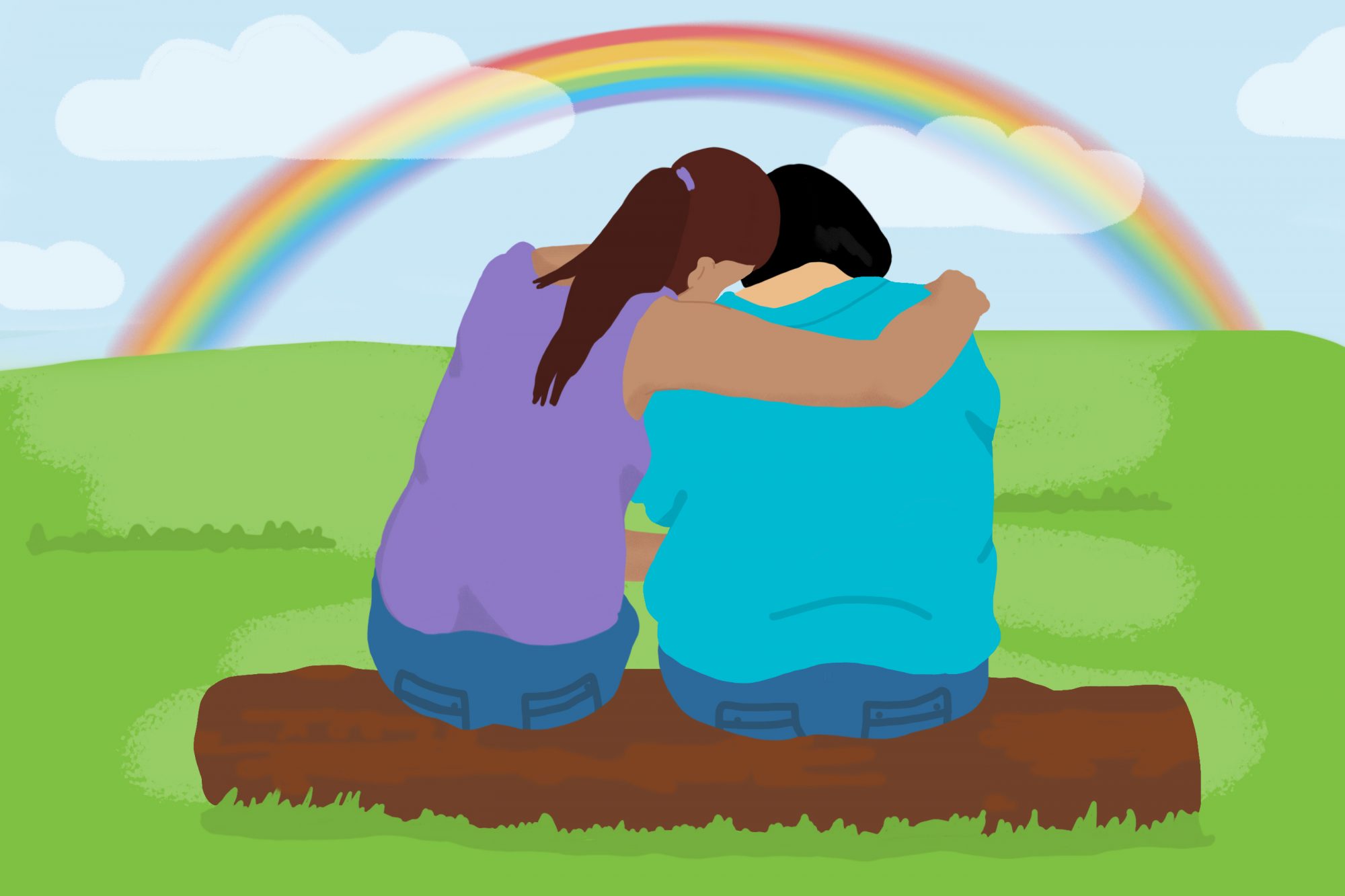
"It was surreal. He wasn't moving like he normally would—I knew something was really wrong," says Amanda Fillipponi, a veterinary sales manager in Pittsburgh.
Fillipponi's instincts were right and she lost her son at 26 weeks pregnant. "When they did the ultrasound and we found out, I was devastated," she says. She had to be induced and endured a difficult labor. "Going through labor and then not having my son to bring home was extremely painful," says Fillipponi. "A part of me almost didn't want him to be delivered because I knew I was never going to see him again."
After Fillipponi gave birth, she learned she was only permitted five paid bereavement days from her employer. "I went through labor the same as if I had delivered a child who had survived and now, I was expected to recover from this five days from now? I was still in so much physical and emotional pain."
Her story isn't uncommon—and while Fillipponi advocated to her human resources department and they updated their leave policy—most HR departments are not as amenable.
Approximately 1 in 4 pregnancies result in a miscarriage and each year there are around 26,000 stillbirths (losing an unborn baby after 20 weeks of pregnancy) in the U.S., but despite many people being impacted by this, a significant lack of support remains. Many employers have inadequate bereavement/family leave (or none at all) for situations like these and employees are denied the time needed to grieve.
More attention is being brought to the issue after New Zealand recently passed a law granting three days of paid bereavement leave for all birthing people and their partners after a miscarriage. It became one of the few countries to have similar laws—the Philippines already offers 60 days of paid leave for a miscarriage or emergency termination of a pregnancy while India allows birthing people six weeks of paid leave after a miscarriage.
Why Leave for Pregnancy Loss is Needed
The impact of a miscarriage and a stillbirth can be profound. Studies show suffering a stillbirth can lead to depression, anxiety, and post-traumatic stress. A study sponsored by the Eunice Kennedy Shriver National Institute of Child Health and Human Development found women with no history of depression are at risk for depressive symptoms for several years after a stillbirth.
Another study published in the American Journal of Obstetrics and Gynecology found 29 percent of people who had a pregnancy loss in the first trimester had symptoms of post-traumatic stress one month later. The impact of losing a baby can also lead to post-traumatic stress in the partner who didn't carry the child.
Jennifer Cervantes, a teacher and jewelry designer in Santa Barbara, California, who miscarried in her first trimester says the shock of going from planning baby names with her mother one day to miscarrying the next day was emotional whiplash. "It was awful, a complete 180—and I had to go right back to work and teach 180 students a day. I was devastated and didn't know where to go for help," Cervantes says.
The grief a pregnancy loss can bring is often discounted, says Emily Skeen, a pediatric nurse in New York City, who works extensively with families who have experienced trauma and loss.
"A stillbirth and a miscarriage—even when someone miscarries early in the pregnancy—can be very traumatic. People are often told to 'try again' or 'move on'—and employers frequently don't acknowledge the significance of this loss in their leave policies," says Skeen. "People can handle grief differently, but those who need time off should be provided with the necessary leave to help them recover."
Fillipponi understands this firsthand. "There was a lack of understanding that I actually had to go through giving birth and need time to recover," she says. "Maternity leave is often perceived as for someone who left the hospital with a baby and is now home taking care of them. Bereavement leave—if it is offered at all—is usually only a few days. This doesn't take into account what people who had a stillbirth or miscarriage often go through—you can't process that level of grief so quickly."
How Better Laws Can Help
There is no federal law requiring employers to provide bereavement leave in America. Of course, parental leave policies vary dramatically by state and employer. Only nine states (New York, California, Colorado, Connecticut, Massachusetts, New Jersey, Oregon, Rhode Island, Washington) and the District of Columbia offer paid family leave (a D.C. teacher was recently denied leave after a stillbirth and her advocacy led to a change in paid bereavement benefits).
The Family and Medical Leave Act (FMLA) provides up to 12 weeks of unpaid leave per year if an employee is unable to work due to medical issues or to care for a child/sick relative (it also requires that employers maintain health benefits and protects employees from being penalized for taking a leave)—but it doesn't include bereavement leave. An employee may be able to take FMLA if they have a "serious medical condition" related to their pregnancy but recovering from the loss of a child is not covered.
There have been recent efforts to amend FMLA. Senator Jon Tester (D-Montana) and other co-sponsors introduced the Parental Bereavement Act of 2019/The Sarah Grace-Farley-Kluger Act which would amend FMLA to allow employees to also take up to 12 weeks off for the loss of a child—but the act failed to pass.
There are plans to re-introduce the legislation. "Senator Tester is working to update current federal FMLA policy to include parents who have lost a child. He believes that loss should carry just as much weight as those [issues] currently outlined in FMLA and will continue working with his colleagues on a path forward for this legislation," states Sarah Feldman, communications director for Senator Tester.
More Needs to Be Done
Even if FMLA is amended, there are still restrictions. FMLA is only available to those who work for companies with 50 or more employees, leaving those who work in smaller companies ineligible. Vulnerable employees, including low-wage workers and part-time workers, often have less job protection, limited access to benefits, paid sick days, and time off—a reported 93 percent of low-wage workers have no paid leave. Those who are self-employed also have limited options to take time off if they suffer this kind of loss.
Using sick or personal days for situations involving pregnancy loss are typically the only option for many people. But even when they do have sick or personal days available, using them isn't always easy.
Whitney Sandoval, a teacher and writer in Wichita, Kansas, had two miscarriages in 2017 and says she did not take any time off of work afterwards. "Because we were trying to conceive, I didn't want to use any of my sick or personal days because it would take away from any potential maternity leave. As a teacher, my district's policy was that mothers had to use all their accrued personal and sick leave; then any additional leave was unpaid," says Sandoval.
Looking back, Sandoval says she wishes she would have advocated for herself more. "My coping mechanism was to just push through and keep my normal routine," she says. "I carried the pain of my miscarriages with me for a long time."
Leave advocates say people having time off to grieve is beneficial for both employees and employers—the more support an employee receives to process a painful loss, the better they can heal, be productive, and function well at work.
"Leave policies need to change and reflect these kinds of losses," says Fillipponi. "If people have no time to mourn, it will only affect them more."
If you need support after a pregnancy loss or stillbirth, help is available at Share, International Stillbirth Association, HAND, Postpartum Support, Miscarriage Hurts, and First Candle.





